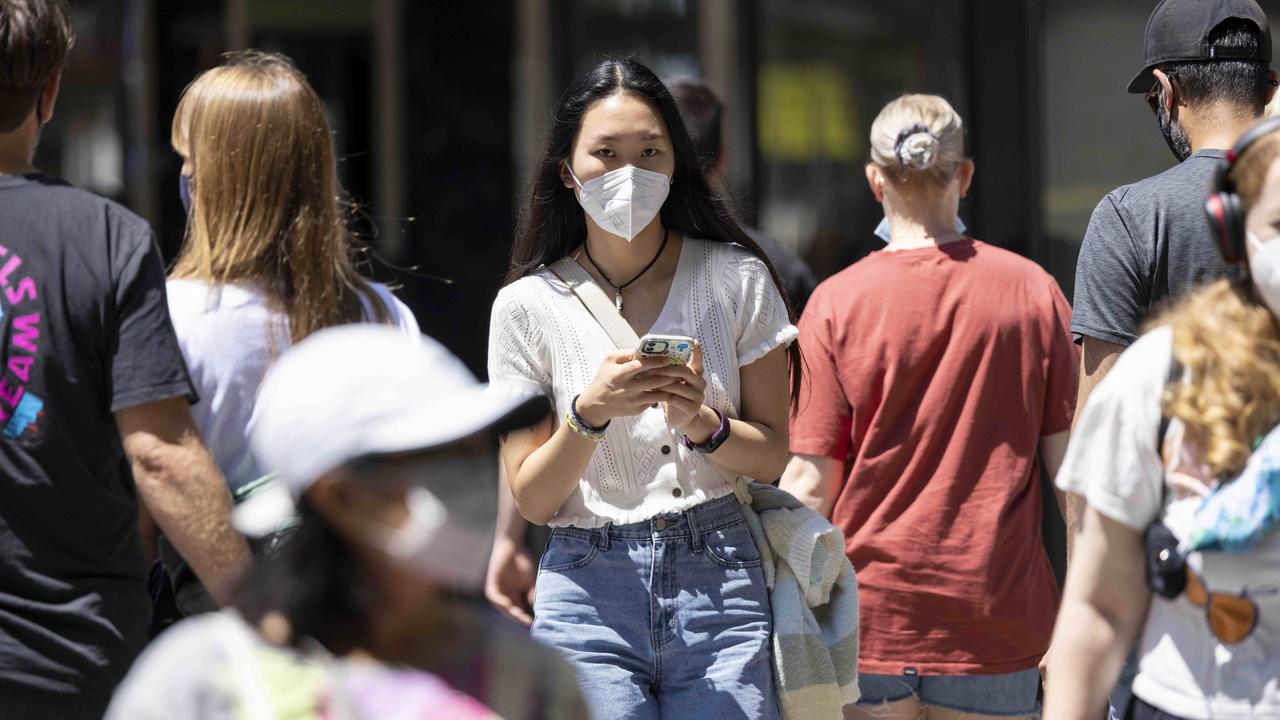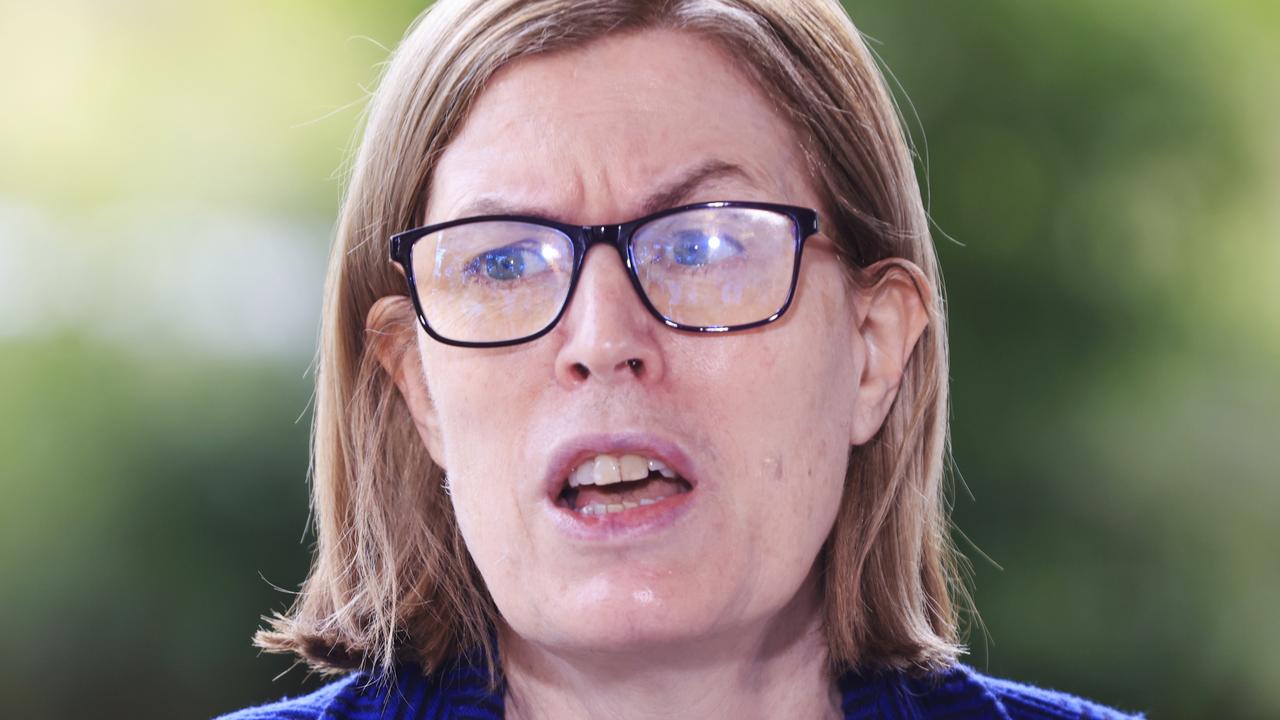Australia’s Covid-19 deaths in 2022 more than double combined total from previous two years
Australia’s Covid-19 death toll in 2022 is more than all of 2020 and 2021 combined. This is why the staggering figures are met with apathy.
If I told you that Australia’s Covid-19 death toll through just four months of 2022 was more than double the entire number of pandemic deaths from the previous two years, would you be shocked?
Or would you shrug your shoulders and put it to the back of your mind alongside the horrors of lockdowns and daily press conferences and fears of the unknown from 2020 and 2021?
The figures are very real. According to the Federal Government’s Department of Health, more than 4500 deaths have occurred this year already, compared to just 2239 deaths over the previous two years.
But how we process them has changed.
Maree Teesson is a professor of psychology at The University of Sydney and director of the Matilda Centre for Research in Mental Health.
She says she is surprised by how quickly Australians switched off, but she understands what is behind it.
“I fundamentally think that Australians really care about each other so it’s quite confronting that we’ve switched off,” she told news.com.au.

“But it’s understandable.”
She says Australians have become “so tolerant of numbers of cases and deaths” in part because they can only tolerate intense fear of something for so long before their mind starts actively avoiding it.
“Humans respond to fear with fight or flight. And fear was the primary motivator used very intensely for behaviour change in the pandemic.
“It was extremely effective in increasing social distancing and virus spread but it is also a very blunt instrument of change. And while it motivated people to socially distance, it reduced social cohesion and connection in our community.”
She said the pandemic led people to “feel powerless” about the spread of the virus and “it can then be easier to avoid and shut off”.
“We have damaged the social connections that keep us mentally healthy and a caring community and we will need to work to build them back.”
Prof Teesson said the “seeming indifference to the death rates is a canary in the mine for me to a bigger social problem – a lack of social connection”.
“It’s the pointy end of the stick,” she said.
There’s another reason Prof Teesson thinks people have turned away from their obsession with daily Covid deaths.
“Context is really important,” she said. “The fact is now, compared to two years ago, we have a really effective vaccine. So for most people who have been vaccinated, [getting Covid-19] is going to be a mild illness.”
Since January, ~half of Australia has caught Covid
— Adam Schwab (@lux_schwab) April 19, 2022
There have been 4,500 Covid related deaths. We know from UK/Denmark that in ~50% of Omicron deaths Covid wasn't the major cause
So that's around 1/10,000 Australians dying DUE to Covid
Or imagine a full MCG, that's 10 people
She said the experience of the pandemic, including being separated from friends and family, is going to have a lasting impact, particularly on young people.
“We absolutely are worried about things popping up down the road.” Prof Teesson said.
“We have seen anxiety and depression go up. That doesn’t go away without us addressing it. “The pandemic has a long tail. Fundamentally it gets back to this thing that you switch on these drivers and can’t just switch them off.”
Biostatistician from the University of South Australia, Professor Adrian Esterman, told The Guardian that apathy towards the virus is dangerous despite it no longer being “an absolute acute emergency”.
“We could still get another variant coming along tomorrow, which is worse than Delta,” he said.
The study of why people are switching off mentally from the pandemic is nothing new.
The Atlantic spoke with Lori Peek, a sociologist at the University of Colorado Boulder who studies disasters. She asked the simple question: “Is our national empathy – our care and love and concern for one another – at such a low level that we are not truly feeling, in our bones, in our hearts, and in our souls, the magnitude of the loss?”
David Dozois, Professor of Clinical Psychology in Ontario, Canada, wrote for The Conversation that “caution fatigue” was to blame.

“Early in the pandemic, many people were extremely concerned,” he wrote. They didn’t know what Covid-19 was, how bad things would get and how to best deal with this issue.
“They received information … about how to manage this virus and stay safe; they took necessary precautions.
“As time passed many people experienced caution fatigue – feeling less motivated or inclined to follow expert advice about Covid-19 and growing more tired of physical distancing, maintaining good hand hygiene, following the arrows at local grocery stores and wearing masks.
“As good as the advice was to ‘stay the blazes home’, people wanted to get out and see friends and family.”
That is driving Australia’s current response to the Omicron wave, Prof Teesson says.
“We have had two years of focusing on the fear, often feeling powerless. It can then be easier to avoid and shut off.”
South Australia recorded two Covid-19 deaths on Wednesday. Six lives were lost to Covid-19 in Queensland. There were 15 Covid-19 deaths in NSW and 14 in Victoria on Wednesday.






